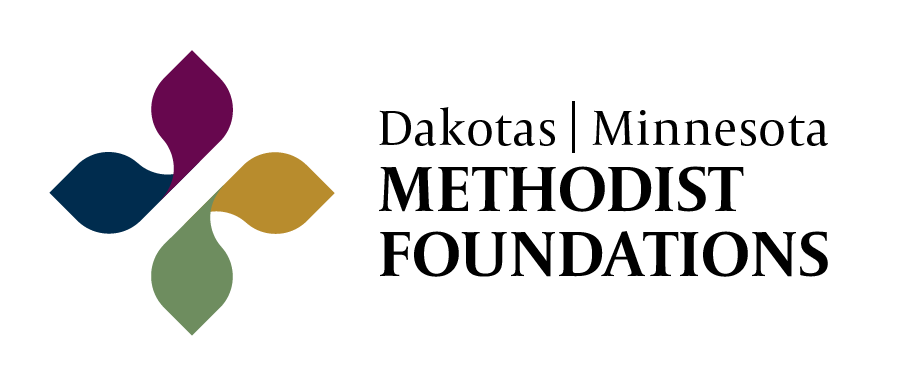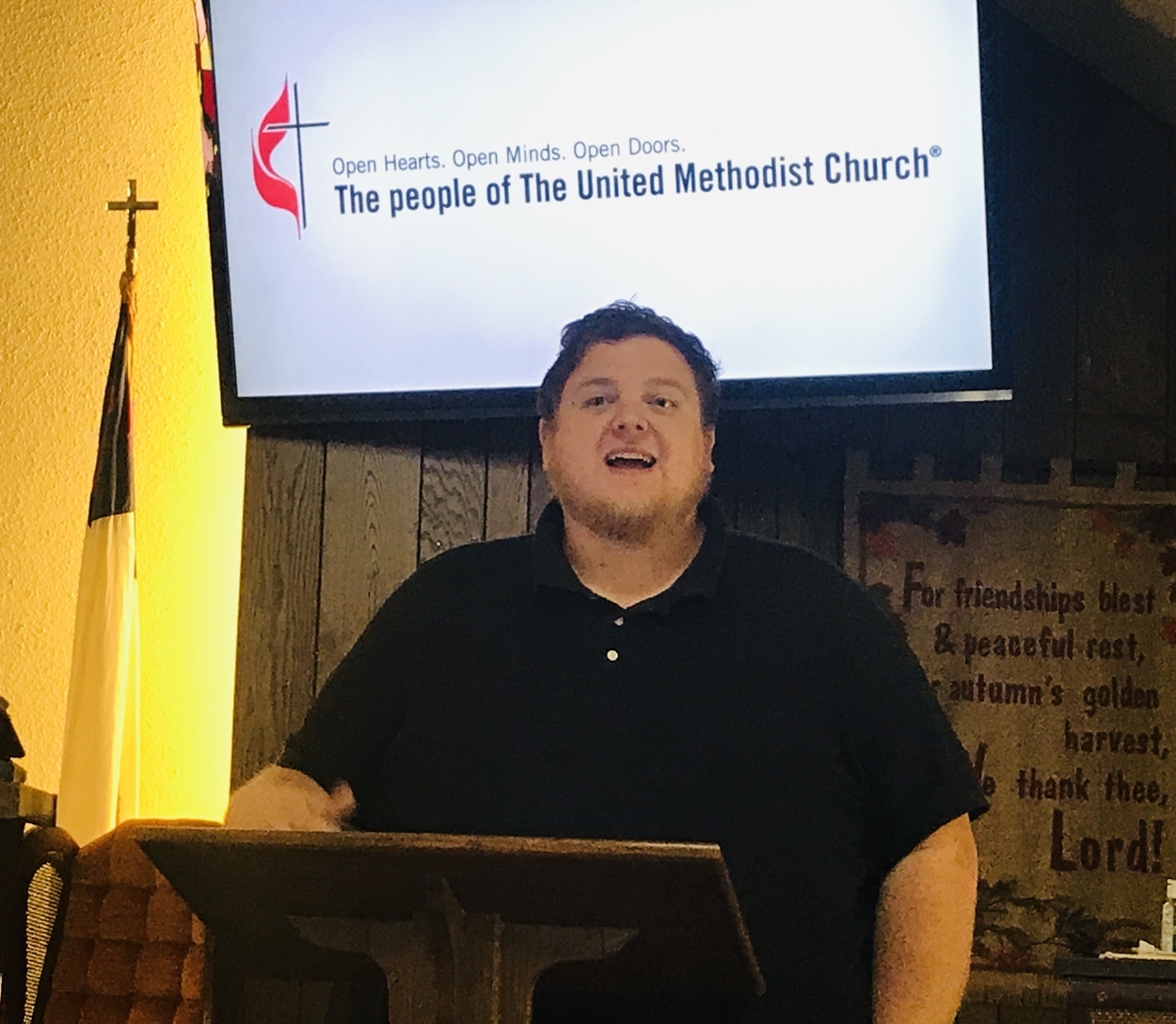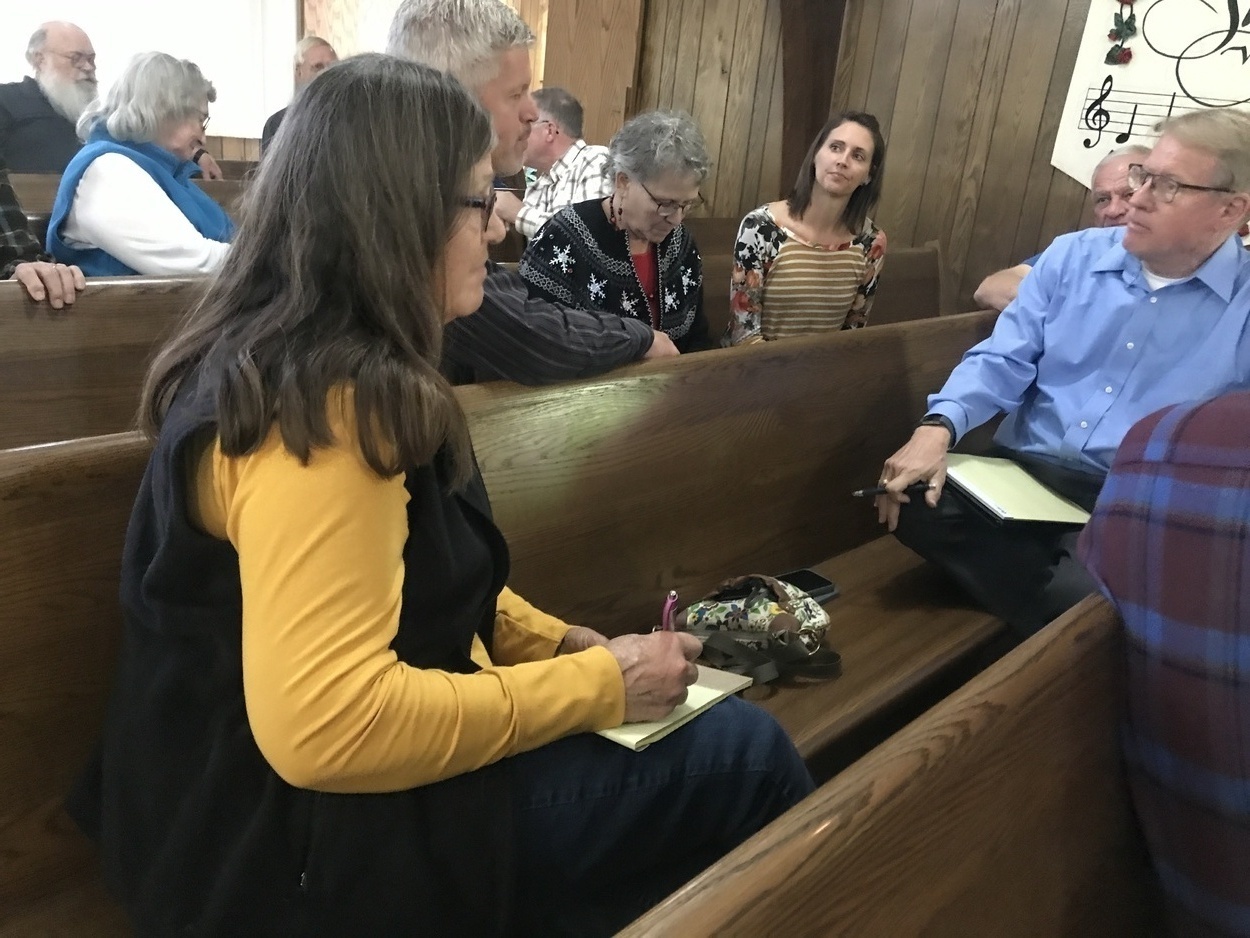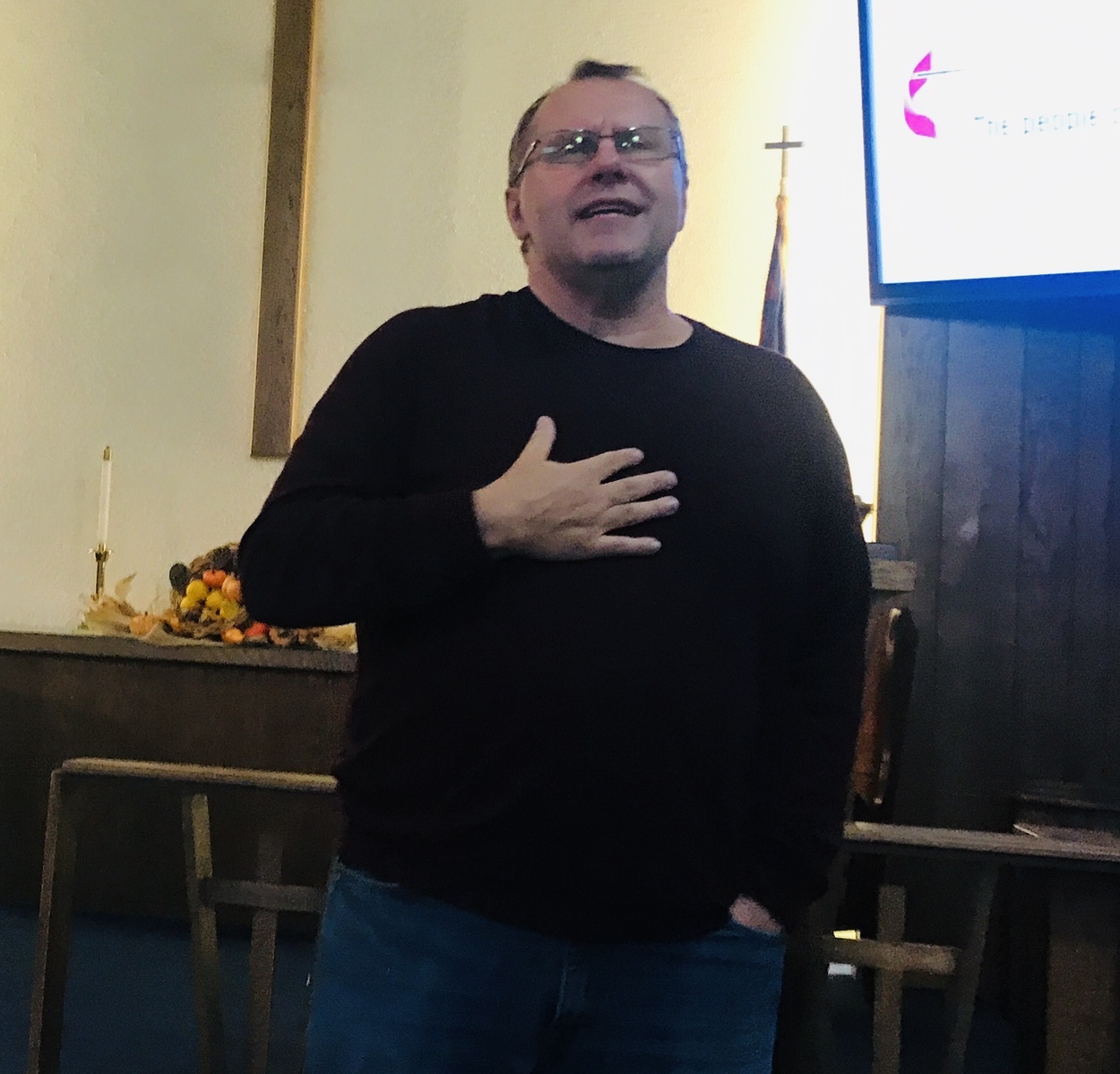
Rural churches connect at fall gatherings

Rev. Zach Kingery discusses the mission, challenges and opportunities of rural ministry at the fall gatherings. Photos by Doreen Gosmire.
“Rural ministry is important. Jesus met people in rural places. Places that were unknown and out-of-the-way,” Rev. Zach Kingery told those gathered at Trinity United Methodist Church in Iroquois, South Dakota, for a fall gathering.
Attendees heard about the context of being rural. Each rural area has a context that is unique with specific opportunities and needs. The fall gatherings are one set of the activities of the Dakotas Connection Initiative. In October 2020, the Dakotas Conference received word that we had been awarded close to $1 million from the Lilly Endowment. The purpose of the grant was to provide funds that would allow the Conference to develop and test new leadership models and support systems to help rural congregations thrive. Read more
The gathering in Iroquois was the last of four meetings held this fall. Across the Dakotas Conference, 80 people attended the gatherings for rural churches, representing 40 congregations.
Participants spent time exploring why rural ministry is essential, challenges and opportunities in rural ministry, and how churches can connect and explore new models in rural ministry.
Rural ministry is a passion for many people and congregations across North and South Dakota.
“There is energy and passion whenever we have people gather in the name of Jesus. But, we often get stuck on size. Size doesn’t make ministry happen,” said Rev. Rebecca Trefz, Southeast District Superintendent. “Wherever there are two or more gathered by God, things are stirring and moving. Rural ministry is important. You are important. The purpose of bringing you together at this gathering is to learn from each other and share ideas. So, the spirit of God might bring us together and spur creativity in new ministry models.”

Participants discuss the challenges and opportunities of rural ministry.
Participants learned that rural ministry is built on missiology. Kingery spoke to those attending about how the ministry of Jesus was carried out in rural settings. The disciples were sent to rural places by Jesus. The purpose of ministry is to "make disciples for the transformation of the world."
“Jesus was born in an agriculture-based village of Bethlehem. Bethlehem means, house of bread,” Kingery told those in attendance. “Jesus grew up in a community called Nazareth. A community of 500 people, a village that was viewed as unimportant. People question how the Messiah could be from Nazareth. We know this from the Bible passage, 'Can anything good come from Nazareth?'”
He told those in attendance at each of the gatherings that rural ministry is essential today. “The mission field is here in the Dakotas. It is in all the places, especially our rural communities. We are called, liked the disciples, to make disciples,” said Kingery.
Those in attendance viewed one example of a unique or creative model of rural ministry. As it is known today, Prairie View United Methodist Church once was four churches facing several challenges. View the challenges and journey of Prairie View UMC here.
In groups, participants shared the challenges that congregations and communities are facing. Some of the challenges listed were engaging younger people, lack of volunteers and involvement, fear of change, fear of losing the comfort of what is currently in place, issues with building and facilities, lack of the resources of time and money, how to use technology effectively, and changing expectations of churches and worship.

Al Roll shares how rural churches can be strategic about ministry.
Models are built on mission, vision, and creativity. Participants at the rural fall ministry gathered watched a video about how Prairie View UMC dealt with challenges that four congregations faced and turned the challenge into an opportunity to build a new faith community in a new facility. Watch how Prairie View dealt with the challenges.
Attendees explored with each other how to understand their rural context to accomplish the mission. Participants discussed in groups what opportunities are present in our rural communities, including these ideas: technology is the chance to worship and gather in different ways, we need to identify and hold onto the things we do well, gatherings in smaller groups helps build relationships and deepen connections like prayer walking, worship in houses, worship and pray around eating or dinner, everyone has talents that are needed.
“Every challenge is an opportunity,” said one of the participants.
Al Roll, a coordinator for the Dakotas Connection Initiative, shared how congregations might explore creative opportunities for rural ministry to thrive. He invited congregations to explore questions like: What is our history? Where are we today? Where do we want to go?
Participants learned from Roll a strategic visioning or brainstorming process called SOAR. First, a congregation should take an inventory of their strengths, opportunities, aspirations, and results or reach.
“The more you see the information, the more creativity and ideas are spurred,” said Roll. “The SOAR strategic planning process focuses on what we can do, what can happen, not on weaknesses and threats.”
Roll is pulling together a summary from the gatherings that will be shared with all the congregations. In addition, congregations are encouraged to continue gathering and seeking resources such as coaching from the Dakotas Connection Initiative.
“I am walking away hope-filled. It is so rewarding to know that rural ministry matters and that we are important in God’s kingdom,” share one of the participants.